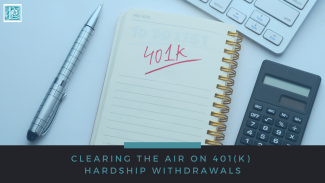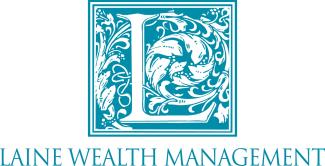
Clearing the Air on 401(K) Hardship Withdrawals
When it comes to 401(k) plans, some people may find themselves a bit confused about the 10% Federal income tax penalty for withdrawals prior to age 59½ and hardship withdrawals from a 401(k) plan. The Internal Revenue Service (IRS) does allow qualified hardship withdrawals from a 401(k) account. However, a qualified hardship withdrawal does not avoid the 10% Federal income tax penalty for early withdrawals.
The following events constitute a qualified hardship withdrawal: payment of college tuition and related educational costs such as room and board for the next 12 months for you, your spouse, dependents, or children who are no longer dependents; purchasing your principal place of residence; unreimbursed medical expenses for you, your spouse, or dependents; or making payments to avoid eviction or foreclosure on your principal place of residence; for funeral expenses; and certain expenses for the repair of damage to your principal residence.
At the same token, there are certain circumstances that avoid the 10% Federal income tax penalty for early withdrawals. These include: distributions attributable to your death or disability; limited situations where you are separated from service; payments made directly to another person as a result of a divorce agreement; a return of a contribution so the plan complies with IRS administrative requirements (e.g., return of an excess contribution); borrowing from your 401(k) account; or when distributions are actually dividends of corporate stock (e.g., distributions under an employee stock ownership plan).
Under the appropriate circumstances, premature distributions from your 401(k) account may act as a helpful financial resource in a time of need. However, it’s important to recognize the implications of removing money from your 401(k). Remember, taking money from your 401(k) for purposes other than retirement can potentially undermine your long-term financial goals. That’s why it’s equally important to be sure such a withdrawal is in your best interest. If you are thinking about taking an early withdrawal from your 401(k), be sure to explore the tax and financial consequences with a qualified professional.
BNSB595-X
Important Disclosures
This information is not intended to be a substitute for specific individualized tax advice. We suggest that you discuss your specific tax issues with a qualified tax advisor.
This article was prepared by Liberty Publishing, Inc.
LPL Tracking #1-05168011

